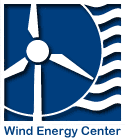Adoption of renewable energy in the US has been hindered by many challenges, but recent literature has highlighted the importance of geographic and cultural factors in complex, place-based decision-making about climate change. This research seeks to better understand the limitations of historical institutions, spatial relationships, and cultural processes as they relate to climate change decision-making. Building on the concept of a “cultural landscape” to analyse coupled natural, cultural, and technological phenomena, this presentation outlines a course of future research in mixed-method and comparative case study approaches to explore specific contexts of climate change adaptation and mitigation, as well as emerging forms, scales, structures, and collaborative projects of climate change decision-making. Implications for renewable energy are discussed, including examples and analogies from the US, Europe, and small-island developing states.
"Offshore Wind Energy and Potable Water Production"
According to the International Renewable Energy Agency (IRENA), wind energy is the most feasible and promising resource for the desalination of sea water, especially in coastal areas with high wind resources. Many islands have ideal conditions for the development of this application. High electricity costs result in the high cost of water supply despite the abundant availability of wind. Compared with technologies that are currently used commercially or on a technically viable scale,such as solar desalination and reverse osmosis with photovoltaics, reverse osmosis with offshore wind energy has the greatest technical feasibility to produce drinking water in the most suitable locations: coastal areas and islands.

